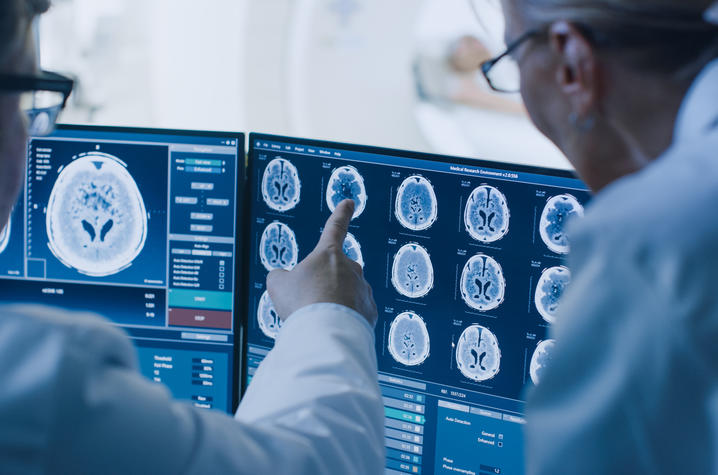Markey study highlights brain-preserving radiation technique for rare cancer

A recent University of Kentucky Markey Cancer Center study highlights a radiation therapy technique that treats brain tumors while preserving patients’ cognitive function. The treatment approach could offer hope for patients with a rare and aggressive form of brain cancer.
The study, published in the medical journal Cureus Dec. 2, details the use of hippocampal-sparing whole brain radiotherapy (HS-WBRT) to treat a patient with a rare type of tumor known as atypical carcinoid. This specialized technique delivers radiation to the brain while protecting the hippocampus, a region critical for memory and learning.
Atypical carcinoid tumors are rare cancers that originate most commonly in the gastrointestinal tract or lungs and can spread to other parts of the body. When these tumors spread to the brain, they present a challenging case for doctors, as there are few established treatment guidelines due to the rarity of such cases.
“Every advancement in treating this rare form of cancer is significant,” said James A. Knight II, M.D., lead author of the study and a radiation oncology chief resident in the UK College of Medicine. “This case shows we can target the cancer while protecting the brain’s memory center, offering patients more effective treatment and better quality of life.”
Traditional whole-brain radiation therapy, while effective at treating tumors, is associated with cognitive decline in patients. The team’s approach using hippocampal-sparing therapy showed promising results: Follow-up brain scans showed a decrease in tumor size and number, while the patient maintained stable memory and cognitive function nearly a year after treatment.
The research team included UK Markey Cancer Center radiation oncologists Waleed F. Mourad, M.D., and Aradhana Kaushal, M.D., as well as UK College of Medicine pathology chief resident Hafsa Nebbache, M.D.
The case highlights the utility of HS-WBRT as a treatment approach for patients with metastatic atypical carcinoid brain tumors. In addition to recommending more frequent brain imaging for early detection in high-risk patients, the study authors highlighted the need for clinical trials focused specifically on atypical pulmonary carcinoids.
More from this series Research Priorities - Cancer
Credits
Words: Elizabeth Chapin (Public Relations and Strategic Communicaitons)
Photo: gorodenkoff, iStock/Getty Images Plus


